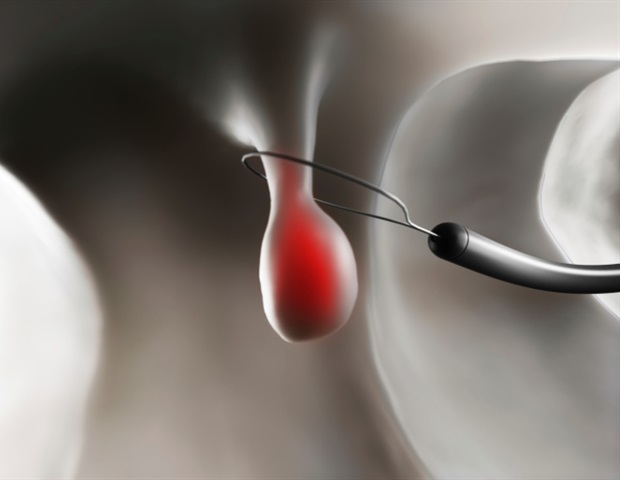According to two new clinical guidelines from the American College of Physicians (ACP), uncomplicated diverticulitis can be treated in an outpatient setting without antibiotics. Patients with complicated disease should be referred for colonoscopy after an initial episode if they have not had a recent colonoscopy. Published in Annals of Internal Medicine, the guidelines are based on the best available evidence on the clinical benefits and harms, test accuracy, patient values and preferences, and consideration of costs. The clinical guidelines also include input from two public members of the organization's Clinical Guidelines Committee (CGC) and a seven-member CGC Public Panel, who provide layperson perspectives on values and preferences.
Diverticulitis is an inflammation of the diverticula, small, bulging pouches in the lining of large intestine (colon) and acute diverticulitis episodes are usually uncomplicated. Uncomplicated diverticulitis refers to localized inflammation, whereas complicated diverticulitis refers to inflammation associated with an abscess, phlegmon, fistula, obstruction, bleeding, and perforation.
In Diagnosis and Management of Acute Left-Sided Colonic Diverticulitis, ACP suggests that clinicians:
- use abdominal CT imaging for patients when there is diagnostic uncertainty in a patient with suspected acute left-sided colonic diverticulitis;
- manage most patients with acute left-sided colonic diverticulitis in an outpatient setting;
- and initially manage select patients acute uncomplicated left-sided colonic diverticulitis without antibiotics.
In Colonoscopy for Diagnostic Evaluation and Interventions to Prevent Recurrence After Acute Left-Sided Colonic Diverticulitis, ACP suggests that clinicians:
- refer patients for a colonoscopy after an initial episode of complicated left-sided colonic diverticulitis in patients who have not had recent colonoscopy;
- do not use mesalamine to prevent recurrent diverticulitis;
- and discuss elective surgery to prevent recurrent diverticulitis after initial treatment in patients who have either uncomplicated diverticulitis that is persistent or recurs frequently or complicated diverticulitis. The informed decision whether or not to undergo surgery should be personalized based on a discussion of potential benefits, harms, costs, and patient's preferences.
The new, evidence-based guidelines are based on systematic reviews conducted by the Brown Evidence-based Practice Center, funded by the Agency for Healthcare Research and Quality (AHRQ). The researchers extracted study data and risk of bias on the diagnosis, treatment, and management of acute left-sided diverticulitis and all studies were assessed for quality of evidence.
According to ACP, these clinical guidelines are important because diverticulitis is increasingly common in patients seen by internal medicine physicians. ACP's advice addresses the best course of treatment for patients, focused on management in an outpatient setting, with fewer drugs, to help improve a condition that can often result in quality-of-life issues and can lead to more series conditions if not treated appropriately.
American College of Physicians
Qaseem, A., et al. (2022) Diagnosis and Management of Acute Left-Sided Colonic Diverticulitis: A Clinical Guideline From the American College of Physicians. Annals of Internal Medicine. doi.org/10.7326/M21-2710.
Posted in: Medical Condition News
Tags: Bleeding, Colonoscopy, CT, Diagnostic, Diverticulitis, Drugs, Elective Surgery, Fistula, Healthcare, Imaging, Inflammation, Large Intestine, Medicine, Research, Surgery
Source: Read Full Article
